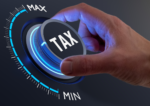Driving home one Friday afternoon, I got stuck behind an elderly woman going twenty miles per hour under the speed limit. The speed limit was forty-five. We were on a country road, so I couldn’t pass safely, and I was frustrated that this person was standing between me and the beginning of the weekend. I could see the woman’s thinly snowcapped head, and I thought to myself, I can’t believe this old bat is licensed to drive. She’s probably half-blind and too frail to control the vehicle. An unsuspecting driver could ram right into her. Her inconsiderate driving might push others to pass in bad spots, possibly causing other accidents.
These kinds of roadblocks are fairly common on my rural commute, and I’ve vented to friends and coworkers before. They sympathize. One told me that old people should be required to requalify for their licenses every ten years. Another thinks that people simply shouldn’t be allowed to drive after a certain age. These positions always make me uncomfortable as a libertarian. What these wished-for restrictions really mean is that government bureaucrats and politicians should decide who is fit to drive.
Remembering those comments while crawling along, I reconsidered. This person’s driving was absolutely maddening, but she wasn’t really endangering my life. We were driving in a rural area—a sensible place for an elderly person to drive, in many ways. It was up to me to be responsible and hang back until she turned off the road. What right does anyone have to bar this person from what the state claims is a public road, free for all to use?
What my sympathetic listeners don’t see is that rather than curbing bad driving, government licensing requirements can actually encourage it. A license is effectively a seal of approval from the government. As such, it prompts people to trust the licensee to operate a motor vehicle and partially bypass assessing people’s driving for themselves. As long as a person is seemingly within the law, or close, many people won’t think twice about hitching a ride. Nor, for that matter, will many people think twice about driving anything anywhere in any road conditions once they have that holographed piece of plastic proclaiming that they can drive, even if they barely passed the minimal proficiency tests some states require.
Maybe if we didn’t have the government telling us who is fit to operate a motor vehicle, the roads would be safer and more efficient. After all, we still see people’s personal judgment creating order on the roads even in this licensing-addled environment. Many newer drivers avoid highways and relatively tricky maneuvers such as parallel parking. Many families sit their elders down for a talk about giving up the car keys. Many elders themselves decide to give up driving after a certain point. A regular American driver’s license allows the bearer to pilot huge RVs and box trucks across the country and haul all kinds of stuff. But many people know they aren’t skilled enough to do these things. They know their comfort level and abide by it. They’re extremely careful in unfamiliar vehicles and situations. In some European countries, passing the driving test in an automatic vehicle means your license does not extend to manual vehicles. This requirement doesn’t exist in the United States, but we don’t see a bunch of people causing accidents all around us. Many people, if not most, know what they’re capable of.
Private property also helps maintain order on the road. Many parents won’t lend or purchase cars until they think the young person can be trusted not to damage anything. I’m not going to drop a truckload of money on something I don’t know how to operate unless I’m planning to learn how to handle it properly. Rental car companies won’t rent to drivers under twenty-five even if they’re licensed by the government, an extra requirement they use to protect their fleet, and one that is sensible albeit somewhat arbitrary and discriminatory. Those with no sense end up having to repair or replace their own and others’ property, or they pay astronomical insurance rates.
Certainly, licensing and other forms of certification are not inherently bad. They can be helpful and convenient, especially in commercial settings, where it would be impractical to personally vet every customer. But allowing one entity to monopolize licensing means that one small group of people decides who can use the roads and move around the country independently. Government licensing requirements bar many people from the road unfairly, regardless of their individual circumstances, and keep people’s own sense and accountability to others from creating order on the road. Government licensing restrictions on driving are not only tyrannical but also create disorder by partially nullifying our responsibility to gauge our own and others’ ability with motor vehicles. Let’s consider driving at our own risk, just as we often walk, bike, and swim at our own risk. It just might make driving safer!
Full story here Are you the author? Previous post See more for Next postTags: Featured,newsletter






















